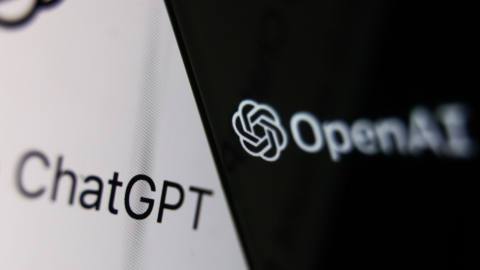Work experience is often hard won, with internships just being one possible trial by fire. Even if you're not mucking up the office coffee order (“What do you mean it needs to be the colour of 'burnt almonds!?'”), you're still left feeling like you can never know enough. Well, rest assured whatever early career misstep you made, it can't be as bad as the story about this former intern who used to work for ByteDance, the owner of embattled short-form video app TikTok itself.
You may have already heard a rumour-mill version of this story, something along the lines of, 'intern injects malicious code into AI model, sabotaging 8000 GPUs and causing ByteDance to lose tens of millions of dollars.' Besides TikTok, ByteDance have also created Doubao, an incredibly popular AI chatbot Bloomberg called “China's answer to ChatGPT.”
Though in a recent social media post ByteDance said that none of their commercial projects were affected by the rumoured sabotage. That said, their statement reveals that there's more to this story (via Ars Technica).
ByteDance have confirmed the intern was fired back in august for “serious disciplinary violations,” including “maliciously [interfering] with the model training tasks” for at least one research project. ByteDance also says that the situation was serious enough to warrant reporting the intern's behaviour to their university, in addition to industry contacts besides that.

What is artificial general intelligence?: We dive into the lingo of AI and what the terms actually mean.
According to ByteDance, the intern in question was part of the commercial technology team, not their AI lab. The implication of some available translations of ByteDance's statement suggest that the intern was part of an advertising team rather than a technical team, though commenters under the social post dispute the distinction, claiming that the commercial technology team was part of the AI lab.
Ultimately, ByteDance claims the intern misrepresented some details on their social media profile, and that a number of resulting reports have overstated what happened as a result. Those 8000 GPUs and alleged millions lost? The company says that this was “seriously exaggerated” but then don't elaborate on the actual figures beyond that. Maybe as a result of this ambiguity, commenters took umbrage with this too, accusing ByteDance of downplaying the damage done.
To summarise, a ByteDance intern—who has since been fired—did interfere with the company's AI model training. The company claims the damage is not as far-reaching as rumours suggest, though is unwilling to plainly state how consequential it really was, but still got the former intern's school involved in disciplinary action. And you thought your work experience was a disaster.






